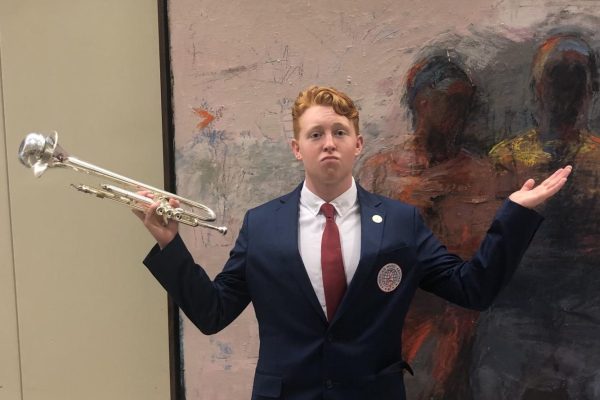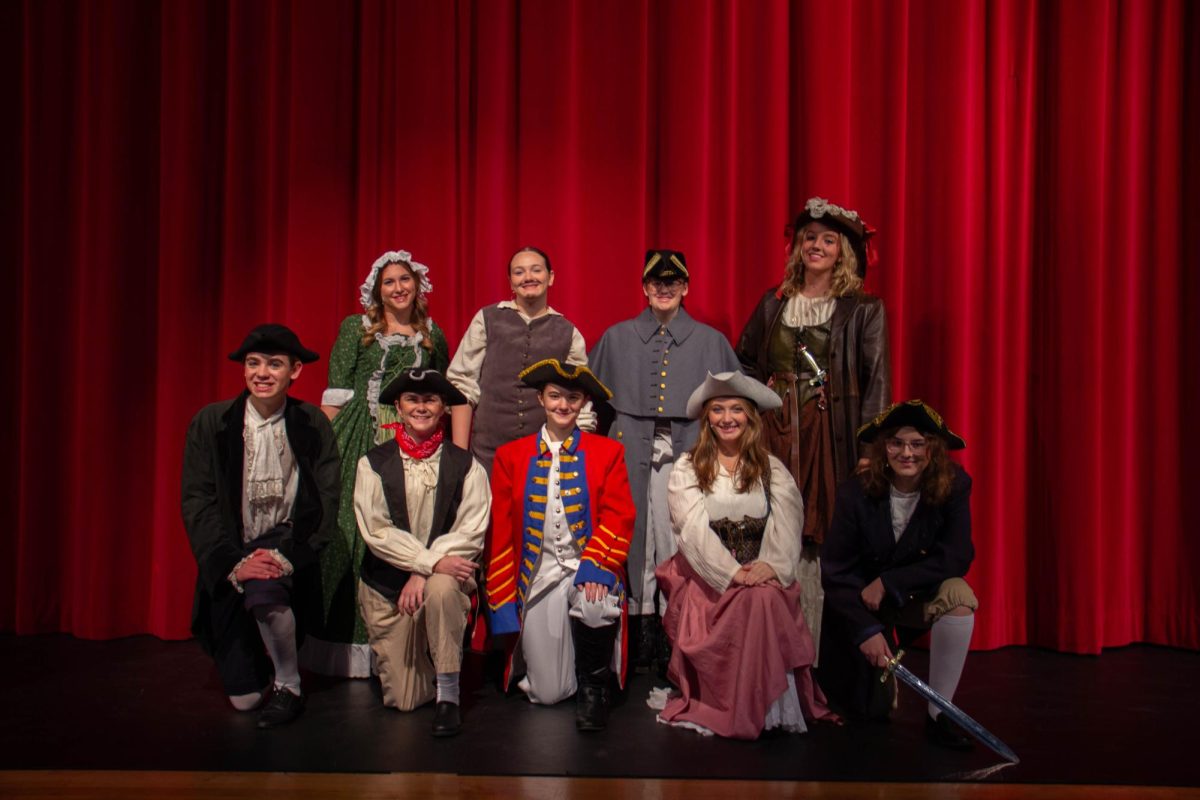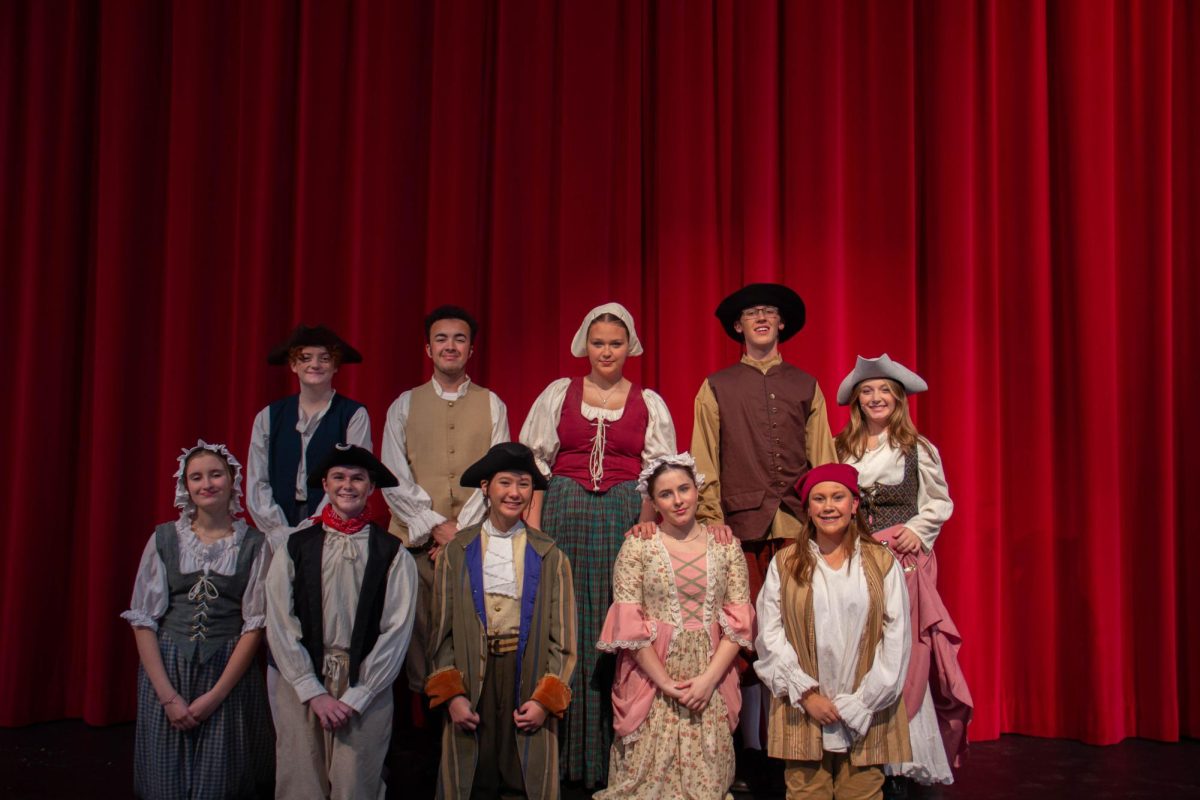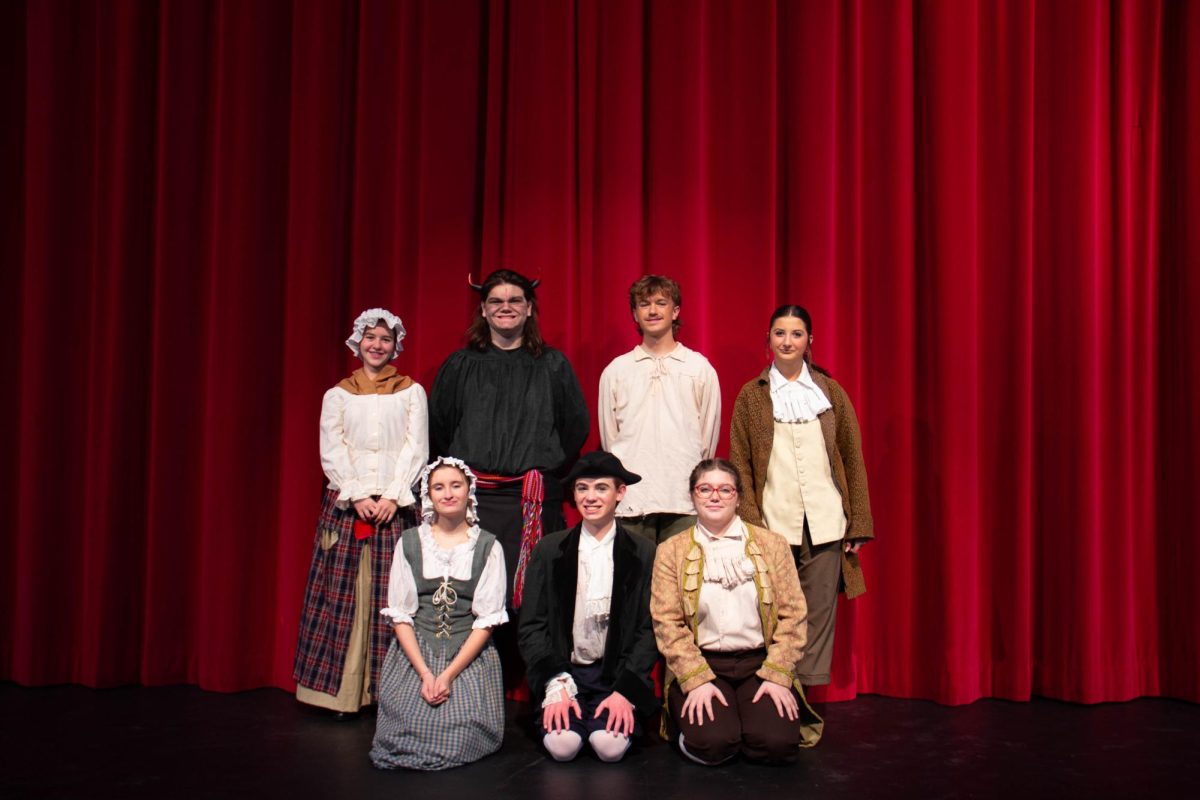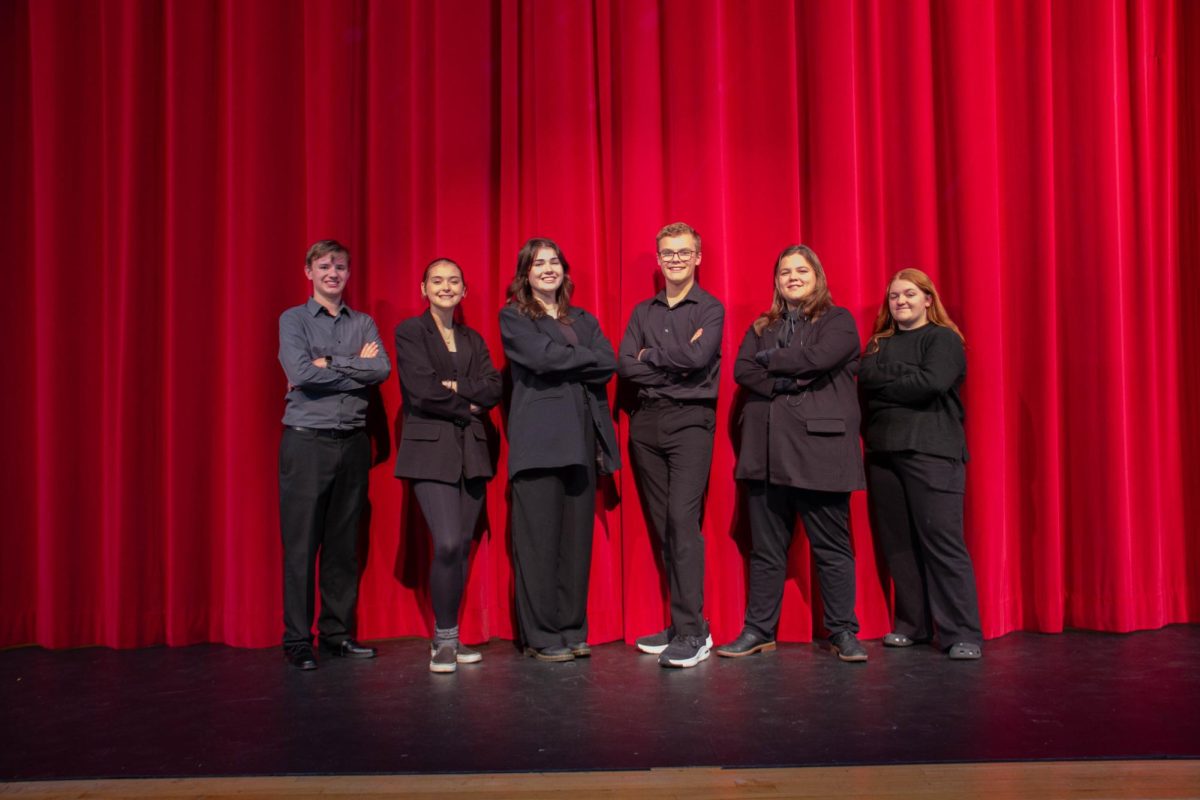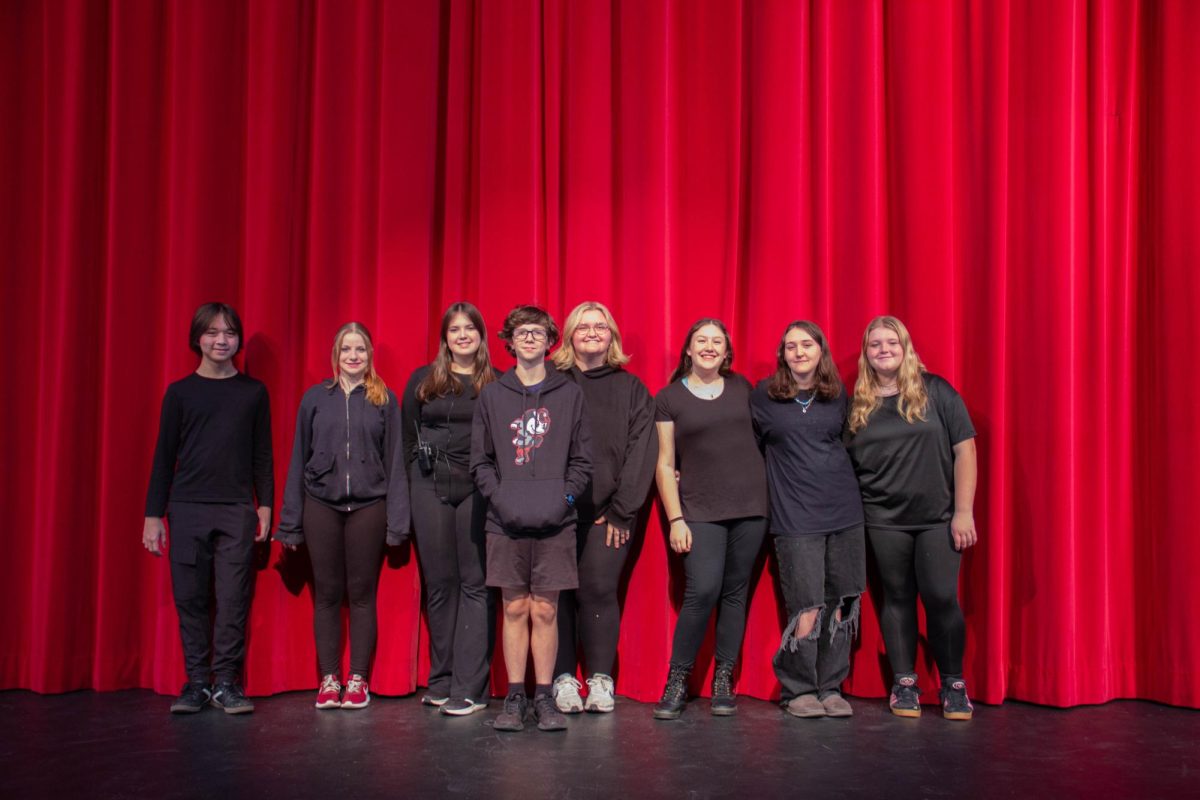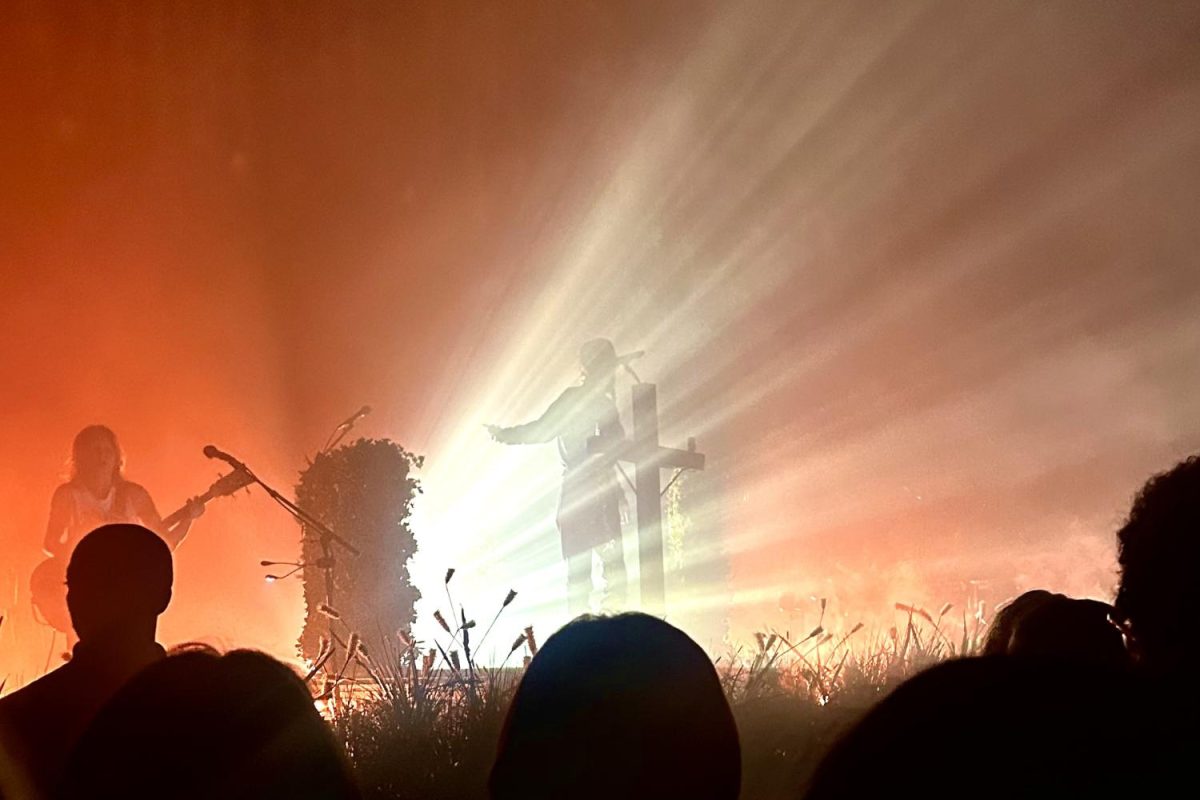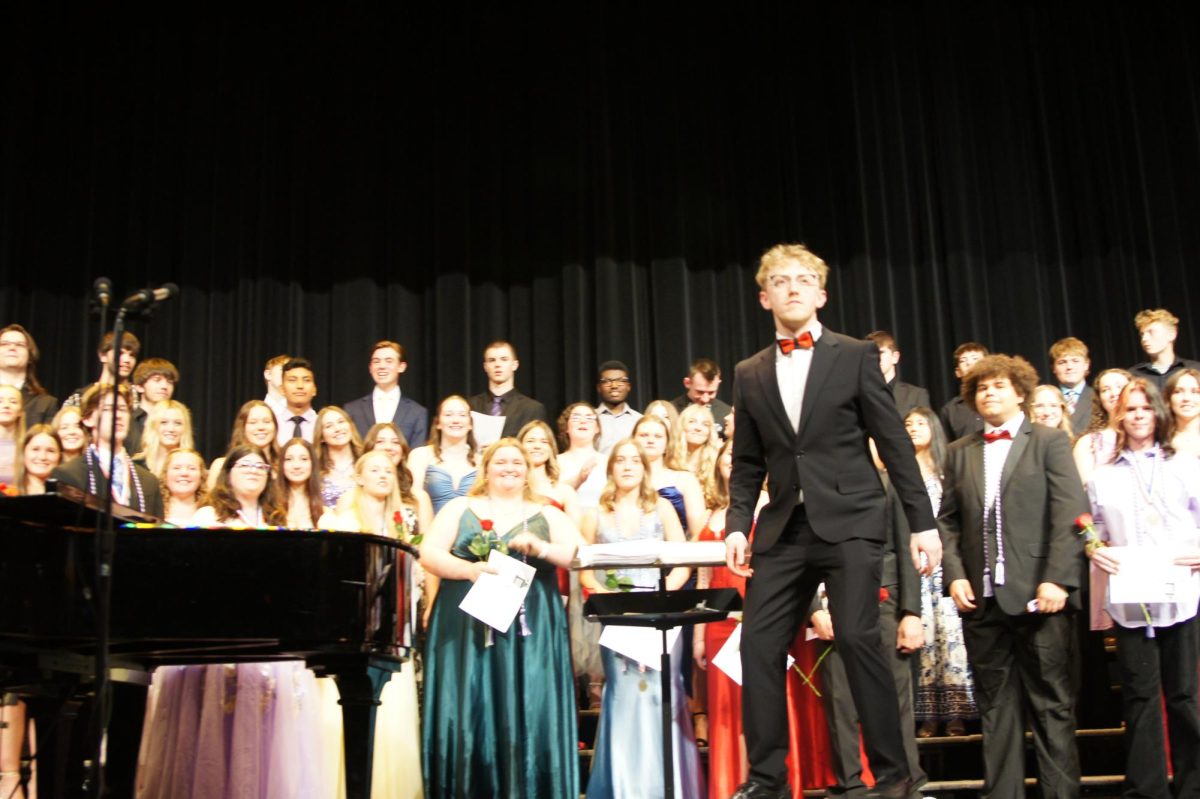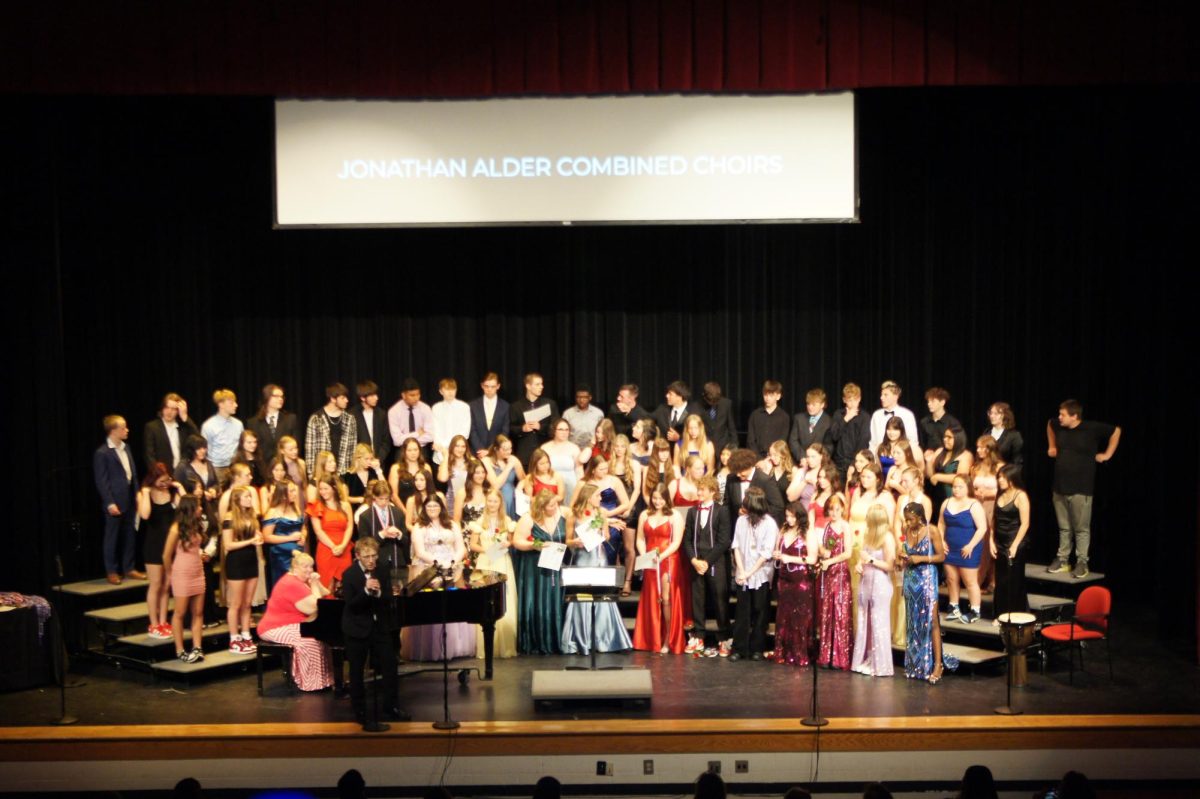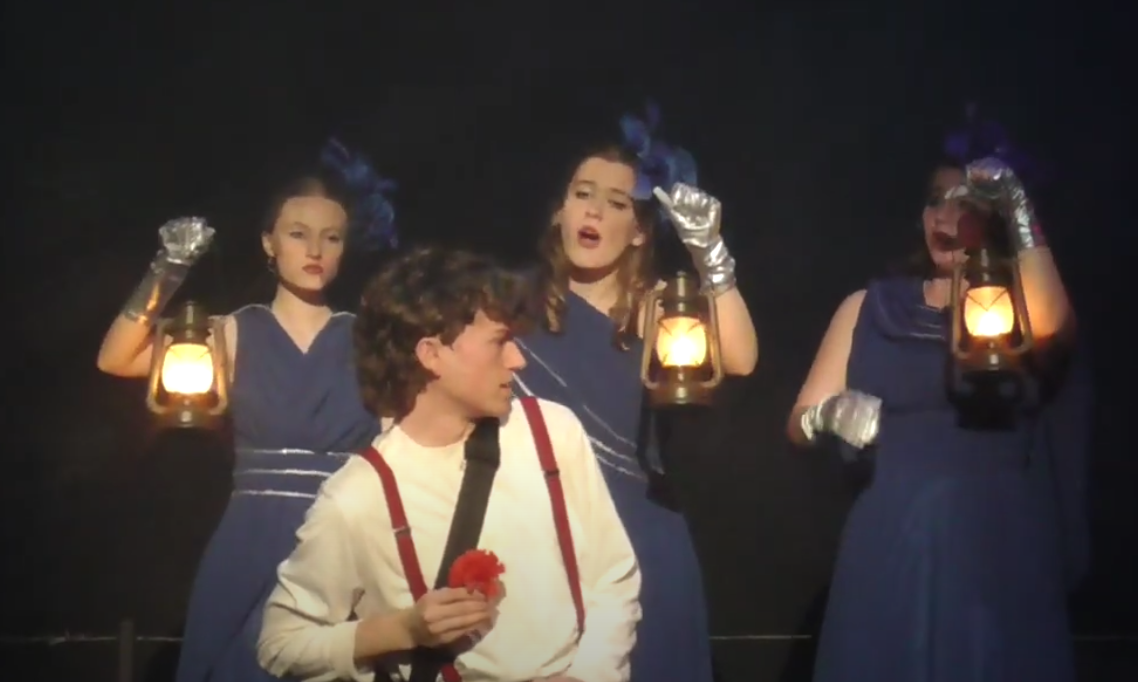Lights, camera, action, and behind the action
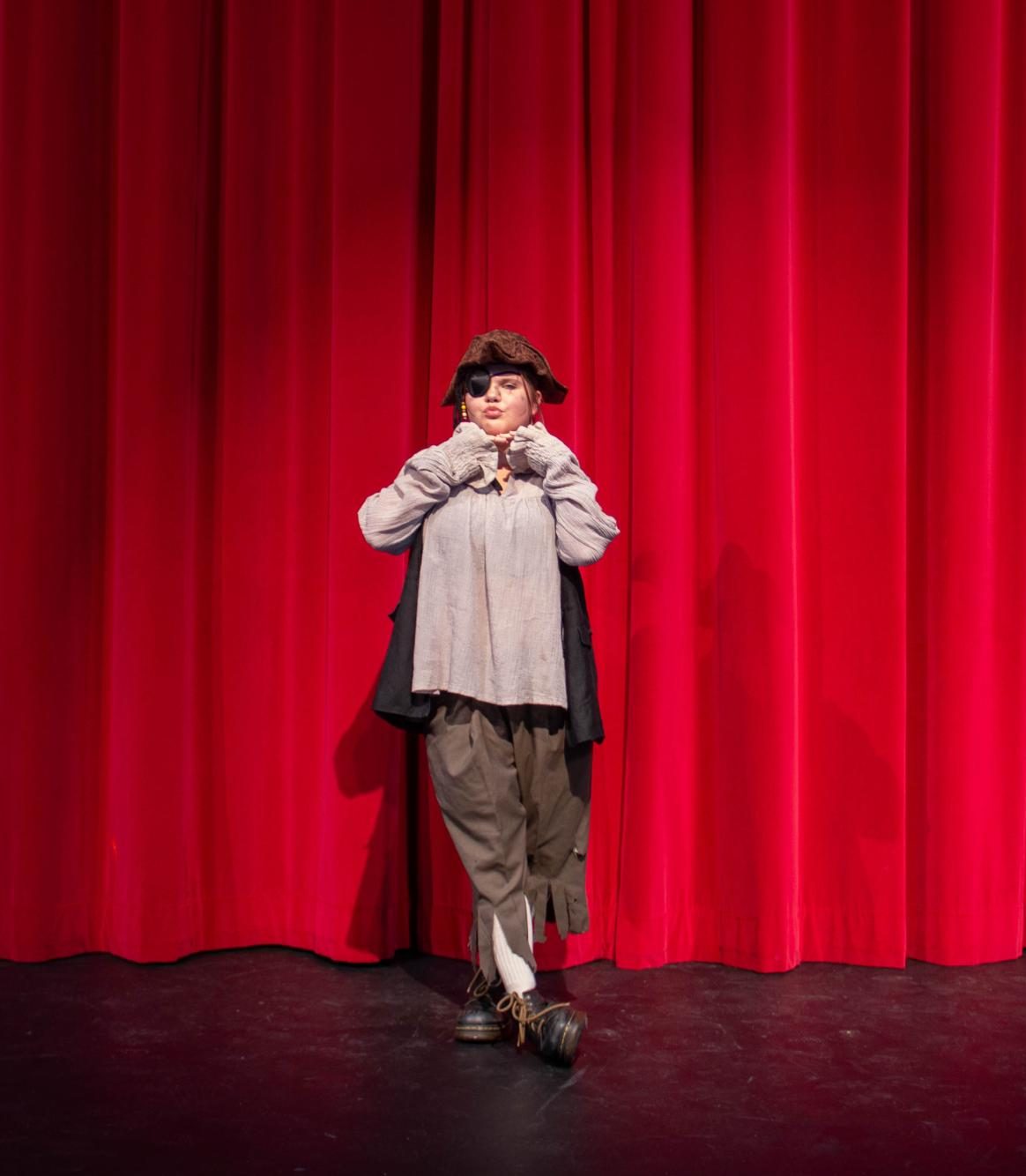
From Nov. 14 to Nov. 17, Jonathan Alder High School put on Eric Coble’s Gold in the Bones, a play that weaves together three pirate-themed fairy tales into one seamless show. Peter De Groodt (Freshman Mackenzie Karasek), the sole survivor of Captain Kidd’s pirate crew, recounts the stories of those who sought out unthinkable wealth before him.
The haunted and chaotic show is driven by the hunt for wealth, and the drastic measures the pirates take to obtain it. Through stories littered with madness and redemption, the three tales come together to urge the viewers to consider what lengths they would go to for riches, while also demonstrating the true danger of greed.
The three individual stories contribute to the larger theme in unique ways, building on each other to strengthen the meaning behind the story. The stories are also very unique from each other, emphasizing specific details along the way.
The tech and stage crew also play a large role in developing the theme. Both teams work to create an atmosphere which drives the story and adds more depth behind the actors. They also help the audience maintain focus and not lose sight of the pivotal moments especially through rapidly changing emotions, moods, environments and climates.
The first short story follows the life of Yan Yost Vanderscamp (junior Sam Pauly). The majority of the first segment takes place in Vanderscamp’s Tavern: The Wild Goose. It contributes to the theme by highlighting the dangers of taking what you have for granted.
The first time we see the greed and selfishness highlighted is in an interaction with three pirates. They try to make a deal with Vanderscamp but he won’t actually pay attention to their end of the deal and is only focused on the fact that he will get money.
Pauly says, “I’m constantly joking around with the three pirates, and my whole kind of thing is that I’m a big jokester, and it kind of comes back to…” and Sophomore Lily Talik, who plays Pauly’s spouse, interjects to finish her thought, “Bite you in the butt.”
He does the same thing to Rebecca (Talik), almost immediately after the interactions with the pirates goes south. It’s here we first see the blindsiding of others and morals for greed.
Pauly says, “She just wants me to pay attention to her, but I’m just too busy off doing my own thing.”
Talik adds, “Originally, I wanted her [Pauly]. Then after, when she starts being like that, I’m like, oh, no… I’m the wife… You dragged me into this.”
Both agree that the big takeaway from their segment is the importance of taking things seriously, and encouraging others to consider how their actions will impact others. Especially if you only chase the things that benefit you and what you want.
“You need to take things seriously, not everything’s a big joke, and, like, you have to think about how it’ll impact you in the future, or how it’ll impact others around you,” says Pauly.
The second story revolves around the Webber family. Throughout the story, Wolfert Webber (senior Nate Eudaily) goes crazier and crazier, blindly sacrificing the well-being of his family in his hunt for riches. He destroys the family’s farm and all the arable land on their property when he thinks that there may be gold hidden underneath
Junior Hailey Neeley and freshman Giuliana Dellapina (who play Bess and Amy Webber) agreed that a more fitting name for the segment would be “Family Gone Mad.”
The second segment has a big impact by introducing tangible currency. Neeley says, “The whole hunt for gold comes from our story. My husband was looking for this gold… so everything kind of revolves around it.”
The idea of the currency, specifically gold, carries throughout the rest of the play. In addition, the second story alludes to many family and other relationships between aforementioned characters and those to come.
“I just kind of have to play the mom role and the type that worries about everything,” says Neeley.
In the first story the focus is more on taking what you have for granted, but in the second the emphasis is placed on losing what you have during the hunt.
Dellapina says a good moral from the second story is “Don’t let your own madness divide your family.”
The third story is when we see greed take its greatest number of victims yet. Tom Walker (senior Joel Mitchell) turns to an evil entity when in a pinch for money. He betrays his wife, Lucy Walker (sophomore Sofia McCabe), and goes to make a deal with, what is referred to in the play as, “the devil.”
Tom Walker starts to scam dozens of people to compensate for the deal he made. Dragging others into poverty, driving himself crazy and ultimately leading to the demise of himself and his wife. This dramatic end to the whole play really ties things together. A violent end really draws the morals to an irrefutable conclusion.
“I made a deal with the devil to try to get money, and I got killed for it, so… I was not trying to make money in an honest way, and I had to pay the price,” says Mitchell.
The build of the third story onto the others was not only understood by the cast, but also the audience.
“I actually heard this from people in the audience,” says McCabe. “They felt like our part of the play kind of brought everything together. Because you had, like, the underlying cause in Act 1, and Act 2 you really saw what the effects of greed were. But in Act 3… you saw the consequences.”
At the end of the play, Tom Walker finds only the heart and liver of his dead wife just before meeting his own demise.
The tech team oversees all lighting and sound logistics. Between spotlights, sound effects and microphones extending all the way to queuing the actors and other teams as the play progresses.
Junior and sound manager Ella Polston says, “If there was no sound team you wouldn’t be able to hear them.”
Sophomore light engineer Jacob Weakley adds, “Running the light board means you’re in charge of the show. I guess because if you’re not there then there’s no show, and no light.”
The numerous sound cues and lighting changes drive the play forward. The impact from the dramatic scenes, moods and -Jacob Weakley’s favorite part- lightning alongside spotlights, intentional lighting and lack thereof the real drama of the play stems from these baselines.
“It just like adds flavor to it,” says Polston. “You’d be really confused if you were just like ‘ah! Tea’s ready,’ and then you’re like how do they know the tea’s ready? Yeah, you gotta hear the tea kettle.”
An example of special effects creating an atmosphere not otherwise obtained is specific lighting when a character doesn’t have the best moral compass.
“The lighting adds to the show because it adds the special effects, like the lightning,” says Weakley.
The stage crew oversees the movement and facilitation of all props, sets, curtains and making sure the actors are in the right places at the right times. They also communicate with the tech crew to notify them of any changes or issues that arise.
“There would be no show without the crew because there would just be one set and the story could not go on,” says senior and stage manager Kyra Neeley
The set pieces are a very massive part of the understanding of the play.
“We turn around these two gold walls into fire, which represents turning from riches to the eternal gates of hell,” says Neeley.
There is a significant amount of prep required to get the show to where it is.
“It requires focus, speed and just a want to help out,” says Neeley. “I think people don’t know just how much we do when the curtains are closed, and how much prep it takes before the show even starts to get everything set backstage so that it can flow nicely.”
The cast rehearsed for two months, and for the two weeks prior to the performance the cast and crew had rehearsal from 3-9pm after school every day.
Freshman Caroline Kerr jokes about the extensive rehearsal time and says, “I’m a backstage person, if you didn’t know there’s a box that I crawl into at night.”
The time put in, however, pays off in the end.
“We’re all really proud of where it is now,” says Pauly. “It’s a lot different when you’re in it and enjoying it because we’re all just having fun.”
According to the cast, some of the benefits of participating in play are making friends, and being proud of what you’ve accomplished together.
“We just really like the stuff [play], and you make really good friends by having a great time and making good memories,” says Dellapina.
That environment is one of the main things that bring people to Alder theater.
“Join fall play, like, as soon as the next one is available because you could find something that you truly love, and if you don’t like it, then there’s always something else that you can do like you can work lights or you can work crew,” says Hailey Neeley. “We always need more people and it’s honestly just a really fun environment to work with.”
